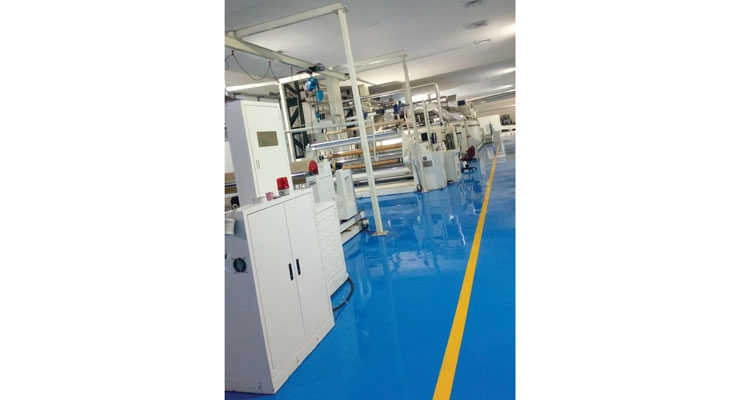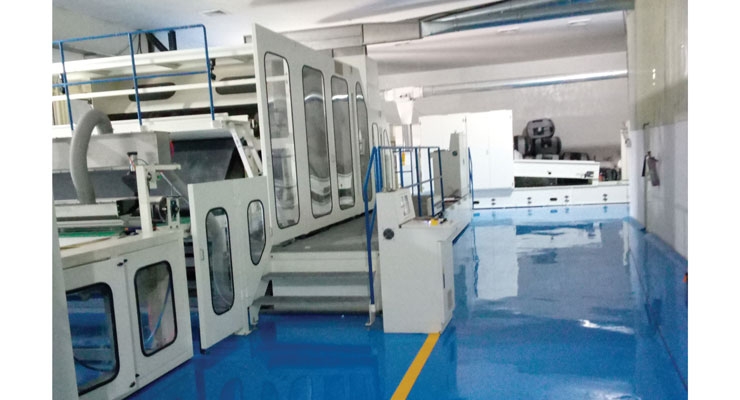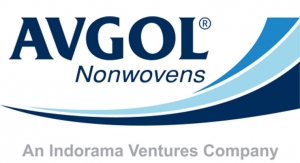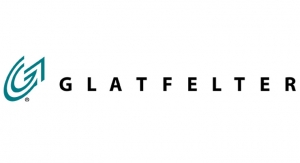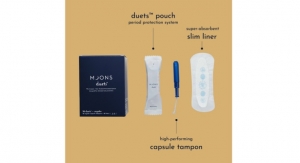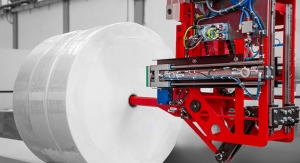05.31.17
GUT No.289 281(2) 282 P.k.
Village Usar
Taluka Wada
District Palghar, Maharashtra, India
Tel: 91-9811414407
acenonwoven@acenonwoven.com
www.acenonwoven.com
Founded in August 2014, Ace Nonwoven Private Limited (Ace) began operating an air through bonded nonwoven plant in India and began shipping commercial quantities in December 2016. According to the company, this is the first plant in India producing this type of nonwovens.
Ace is led by R. R. Maheshwari and Deepti Maheshwari. Maheshwari is currently business head of Ginni Nonwovens, a manufacturer of spunlace nonwovens and consumer wipes. Ms. Maheshwari is a textile graduate from The Indian Institute of Technology Delhi, with experience in technical textiles and nonwovens, and has been trained overseas in nonwovens technologies.
Located in the western part of India, near Mumbai, Ace’s plant was built with top hygiene practices, according to Maheshwari. Ace’s machinery and technology has been sourced from well-reputed global suppliers and the new air through bonded line is equipped with inline cameras and metal detection technology.
“Most of the hygiene products currently use alternate materials that are not as efficient,” Maheshwari says. “Appreciating superior properties of this material, some baby and feminine hygiene brands in India are already incorporating air through nonwovens in their products by importing them from Thailand/China. Importing the material means higher costs, but it allows consumers to access superior product. Local production of air through products will help bring locally made products to a higher performance level.”
Most of the production from Ace’s plant will target baby diaper and feminine hygiene applications in the acquisition distribution layer (ADL) and topsheet. As a topsheet, the product is very soft and feels extremely comfortable against the body. When used in an ADL layer, it is very efficient in distributing and absorbing liquids. The weight of the product can be reduced significantly. There is also a remarkable improvement in all product performance parameters as compared to conventional products, Maheshwari says.
Ace’s new plant will meet local demand and will also export surplus quantities.
“Air through bonded nonwovens are known for high loft, bulk, absorbency and thickness, as well as lower weights,” he says. “These features make them ideal for variety of disposable and durable end use product segments like baby diapers and feminine hygiene, garment wadding, interlining, insulation, filtration, bedding, furniture, carpet backings, wipes and fabric softener sheets.”
Hygiene product penetration in India is currently at a low level, Maheshwari explains, however use is growing at a rate of 15 to 20% annually. “With a growing economy, there is a surge in middle class as well as in income levels,” he continues. “The number of women in the workplace is increasing. Feminine and childcare hygiene is taking a different dimension. Demand for quality products is rising even faster. This plant will help in meeting this demand so that the Indian diaper and feminine hygiene industries could offer product of international quality.”
Village Usar
Taluka Wada
District Palghar, Maharashtra, India
Tel: 91-9811414407
acenonwoven@acenonwoven.com
www.acenonwoven.com
Founded in August 2014, Ace Nonwoven Private Limited (Ace) began operating an air through bonded nonwoven plant in India and began shipping commercial quantities in December 2016. According to the company, this is the first plant in India producing this type of nonwovens.
Ace is led by R. R. Maheshwari and Deepti Maheshwari. Maheshwari is currently business head of Ginni Nonwovens, a manufacturer of spunlace nonwovens and consumer wipes. Ms. Maheshwari is a textile graduate from The Indian Institute of Technology Delhi, with experience in technical textiles and nonwovens, and has been trained overseas in nonwovens technologies.
Located in the western part of India, near Mumbai, Ace’s plant was built with top hygiene practices, according to Maheshwari. Ace’s machinery and technology has been sourced from well-reputed global suppliers and the new air through bonded line is equipped with inline cameras and metal detection technology.
“Most of the hygiene products currently use alternate materials that are not as efficient,” Maheshwari says. “Appreciating superior properties of this material, some baby and feminine hygiene brands in India are already incorporating air through nonwovens in their products by importing them from Thailand/China. Importing the material means higher costs, but it allows consumers to access superior product. Local production of air through products will help bring locally made products to a higher performance level.”
Most of the production from Ace’s plant will target baby diaper and feminine hygiene applications in the acquisition distribution layer (ADL) and topsheet. As a topsheet, the product is very soft and feels extremely comfortable against the body. When used in an ADL layer, it is very efficient in distributing and absorbing liquids. The weight of the product can be reduced significantly. There is also a remarkable improvement in all product performance parameters as compared to conventional products, Maheshwari says.
Ace’s new plant will meet local demand and will also export surplus quantities.
“Air through bonded nonwovens are known for high loft, bulk, absorbency and thickness, as well as lower weights,” he says. “These features make them ideal for variety of disposable and durable end use product segments like baby diapers and feminine hygiene, garment wadding, interlining, insulation, filtration, bedding, furniture, carpet backings, wipes and fabric softener sheets.”
Hygiene product penetration in India is currently at a low level, Maheshwari explains, however use is growing at a rate of 15 to 20% annually. “With a growing economy, there is a surge in middle class as well as in income levels,” he continues. “The number of women in the workplace is increasing. Feminine and childcare hygiene is taking a different dimension. Demand for quality products is rising even faster. This plant will help in meeting this demand so that the Indian diaper and feminine hygiene industries could offer product of international quality.”

